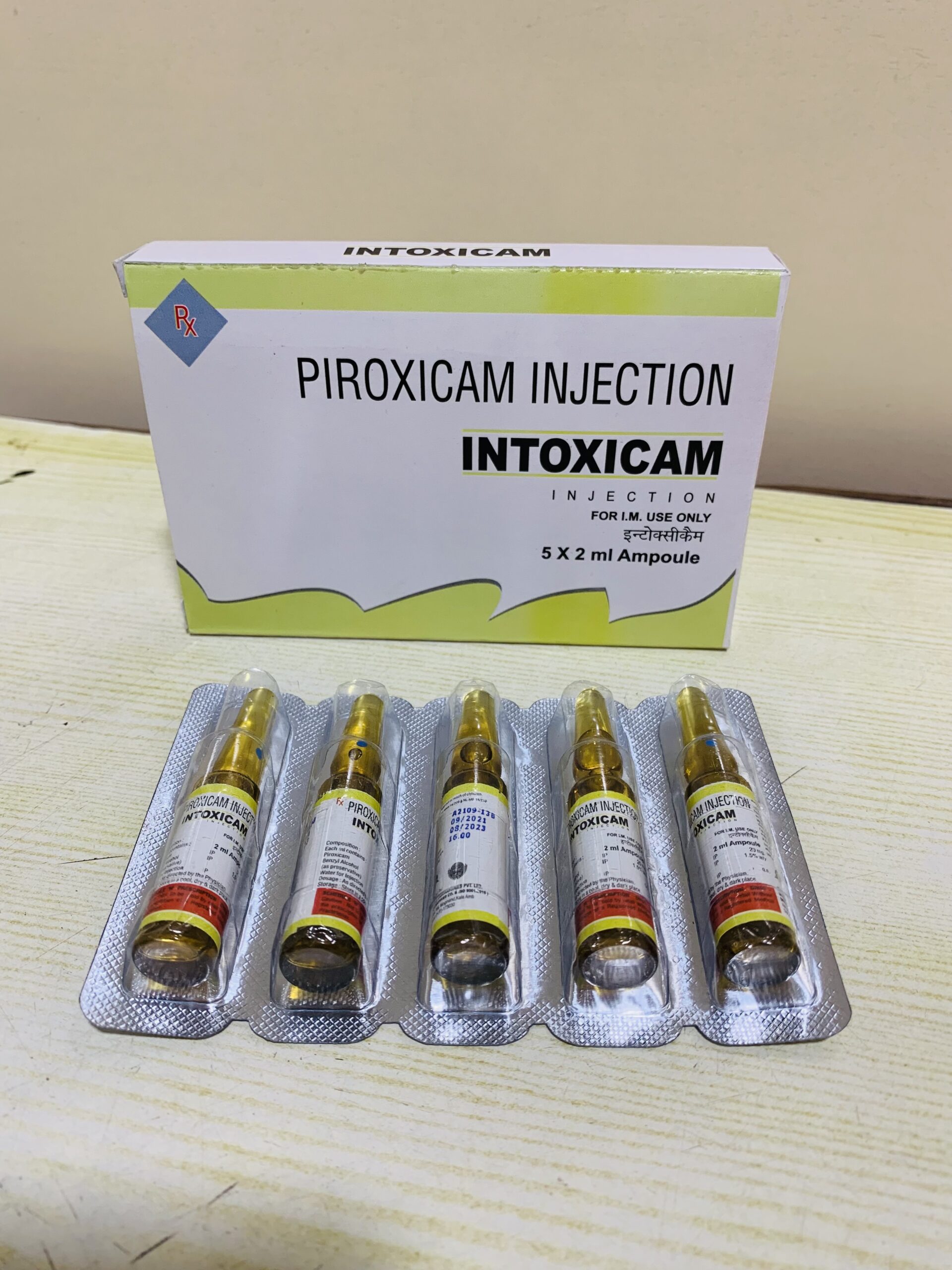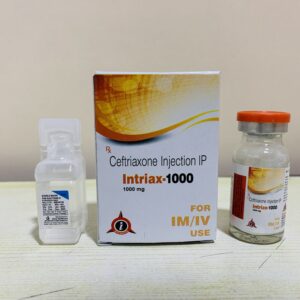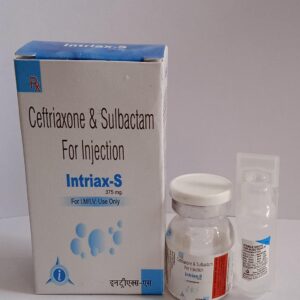Piroxicam Injection (Intoxicam)
Piroxicam injection is used to relieve pain, tenderness, swelling, and stiffness caused by osteoarthritis (arthritis caused by a breakdown of the lining of the joints) and rheumatoid arthritis (arthritis caused by swelling of the lining of the joints). Piroxicam is in a class of medications called NSAIDs.
Piroxicam is a nonsteroidal anti-inflammatory drug (NSAID) that is used to treat pain. Piroxicam may also be used for purposes not listed in this medication guide.
Warnings
Piroxicam injection can increase your risk of fatal heart attack or stroke. Do not use piroxicam just before or after heart bypass surgery (coronary artery bypass graft, or CABG). Piroxicam may also cause stomach or intestinal bleeding, which can be fatal.
Before taking this medicine
You should not use piroxicam if you are allergic to it, or if you have ever had an asthma attack or severe allergic reaction after taking aspirin or an NSAID.
Piroxicam can increase your risk of fatal heart attack or stroke, even if you don’t have any risk factors. Do not use this medicine just before or after heart bypass surgery (coronary artery bypass graft, or CABG).
Piroxicam injection may also cause stomach or intestinal bleeding, which can be fatal. These conditions can occur without warning while you are using piroxicam, especially in older adults.
Tell your doctor if you have ever had:
- heart disease, high blood pressure, or if you smoke;
- a heart attack, stroke, or blood clot;
- a stomach ulcer or stomach bleeding (especially while using an NSAID);
- liver or kidney disease;
- asthma; or
- if you take aspirin to prevent heart attack or stroke.
If you are pregnant, you should not take piroxicam unless your doctor tells you to. Taking an NSAID during the last 20 weeks of pregnancy can cause serious heart or kidney problems in the unborn baby and possible complications with your pregnancy.
Ovulation (release of an egg from your ovary) could be delayed while you are taking piroxicam. This effect is usually not permanent. You should not take piroxicam while you are trying to get pregnant.
It may not be safe to breastfeed while using this medicine. Ask your doctor about any risks.
Piroxicam is not approved for use by anyone younger than 18 years old.
How should I take piroxicam?
Follow all directions on your prescription label and read all medication guides. Your doctor may occasionally change your dose. Use the lowest dose that is effective in treating your condition.
It may take up to 2 weeks before your symptoms improve. Keep using the medicine as directed and tell your doctor if your symptoms do not improve.
If you use piroxicam long-term, you may need frequent medical tests.
Store at room temperature away from moisture and heat.
What happens if I miss a dose?
Take the medicine as soon as you can, but skip the missed dose if it is almost time for your next dose. Do not take two doses at one time.
What happens if I overdose?
Overdose symptoms may include nausea, vomiting, stomach pain, black or bloody stools, or coughing up blood.
What should I avoid while taking piroxicam?
Avoid drinking alcohol. It may increase your risk of stomach bleeding.
Avoid taking aspirin while you are taking piroxicam.
Ask a doctor or pharmacist before using other medicines for pain, fever, swelling, or cold/flu symptoms. They may contain ingredients similar to piroxicam.
Piroxicam side effects
Get emergency medical help if you have signs of an allergic reaction (hives, difficulty breathing, swelling in your face or throat) or a severe skin reaction (fever, sore throat, burning eyes, skin pain, red or purple skin rash with blistering and peeling).
Get emergency medical help if you have signs of a heart attack or stroke: chest pain spreading to your jaw or shoulder, sudden numbness or weakness on one side of the body, slurred speech, leg swelling, or feeling short of breath.
Stop using piroxicam and call your doctor at once if you have:
- severe headache, blurred vision, pounding in your neck or ears;
- heart problems–swelling, rapid weight gain, feeling short of breath;
- liver problems–loss of appetite, stomach pain (upper right side), tiredness, itching, dark urine, clay-colored stools, jaundice (yellowing of the skin or eyes);
- signs of stomach bleeding–bloody or tarry stools, coughing up blood or vomit that looks like coffee grounds;
- kidney problems–little or no urination, swelling in your feet or ankles, feeling tired or short of breath; or
- low red blood cells (anemia)–pale skin, unusual tiredness, feeling light-headed or short of breath, cold hands and feet.
Common side effects may include:
- abnormal liver function tests.
- urination problems;
- upset stomach, heartburn, loss of appetite, stomach pain, nausea, vomiting;
- gas, diarrhea, constipation
- dizziness, headache;
- itching, rash; or
- ringing in your ears.
Click on the “Enquire” button to submit your requirement for Pcd pharma franchise or pharma third party manufacturing of this product.
Also For Higher Anitibiotics (Beta-lactam):- Welcure Remedies
Explore more from this category:- Multivitamin, Multimineral Tablet (Intevit-F) Vancomycin 1 gm Injection (I Vanc 1gm) Ondansetron Injection (Insetron)
Granisetron 1mg/3ml Injection (Integron)
Methylcobalamin injection (Intebion-2500)
Colistimethate Injection(I-Colistin 3 Miu)

![Azithromycin Injection [Introcin-500]](https://integratedlaboratories.in/wp-content/uploads/2022/04/Azithromycin-Injection-Introcin-500-300x300.jpg)



Reviews
There are no reviews yet.